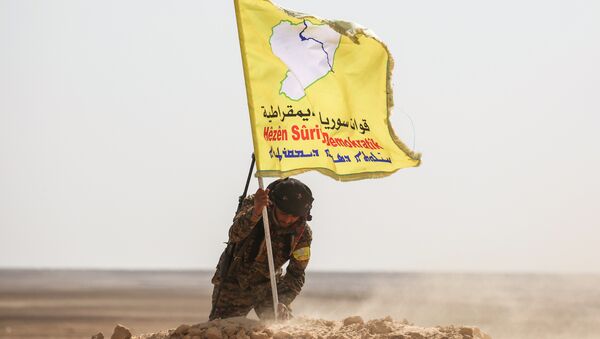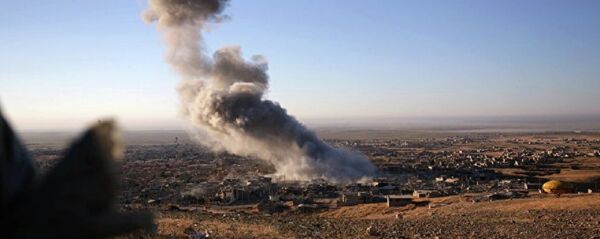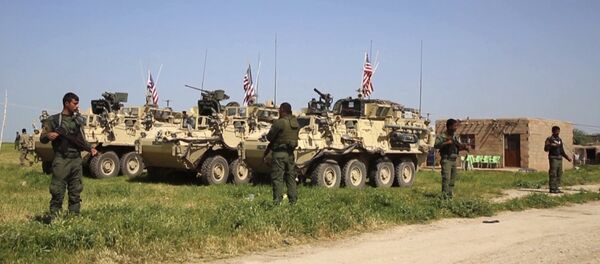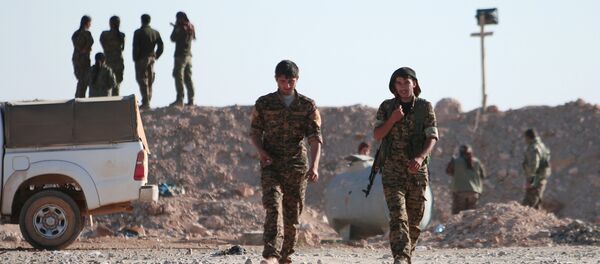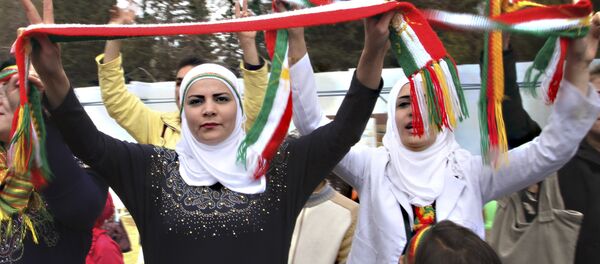"They are fighting street battles inside Raqqa now, and we have experience in urban warfare," she added.
In their drive for Raqqa, Kurdish forces have been initially supported by a United States-led coalition and are currently coordinating their actions with American forces. Earlier, the Pentagon deployed several marine units to the area, in addition to previously deployed 500 Special Forces troops.
According to the Pentagon, the newly-deployed units have heavy weapons, including M777 155-mm howitzers, and AH-64 Apache attack helicopters. The Marines are providing the operation with artillery and close air support.
"The SDF, partnered with enabling support from US and coalition forces, are the only force on the ground that can successfully seize Raqqa in the near future," Pentagon Press Secretary Sean Spicer told journalists in May.
Raqqa was one of the first cities captured by the terrorists in January 2014. The current offensive is expected to be long and bloody and could be a major turning point in the war against Daesh.
Premature Move
"Since the assault on Raqqa is carried out by the SDF, it makes sense that after its recapture, the city will become a part of the democratic federal system created by us in northern Syria," Gharib Hassou, a representative of the Syrian Kurdish Democratic Union Party (PYD) in Iraqi Kurdistan, told Sputnik.
Some media outlets reported that Washington reassured Kurds that Raqqa would be part of the federal region in northern Syria. In turn, SDF spokesman Talal Selo denied the reports.
"There were no promises from the US. We didn’t ask Washington for any guarantees on this matter. Only Syrians can decide on including Raqqa population in a self-governing regime or the federal regime we’re asking for," Selo told Sputnik.
However, in late-March, Kurdish representatives announced their withdrawal from the fifth round of the talks. They claimed that the other parties ignored the Kurdish issue and did not want to discuss the status of Kurdish territories.
"We cannot ignore this problem and insist on a broader dialogue. We believe that our further involvement in this round of the negotiations is useless. We’re pulling out from the talks," Kurdish representatives said.
Troubled Talks
At the talks, tensions emerged between Syrian Kurds and representatives of the Arab opposition who opposed placing the Kurdish territorial status issue on the agenda.
As a result, Kurds have no option but to talks to foreign players, first and foremost the United States, bypassing the opposition and Damascus.
There have been numerous reports that Washington makes regular offers to Kurds in exchange for their combat involvement in the liberation of Raqqa. Recently, a Kurdish autonomy promised by Washington has been reported for the second time. Initially, it was reported by Several Kurdish media outlets back in March. It was suggested that a Kurdish autonomy in northern Syria would be the first step in the creation of a sovereign Kurdish state in Syria and Iraq.
In turn, Russia has repeatedly called to involve Kurds in the talks, warning against any behind-the-scenes decision. Russian Foreign Minister Sergei Lavrov noted that the Kurdish problem should not be ignored and needs to be resolved as soon as possible.
Never miss a story again — sign up to our Telegram channel and we'll keep you up to speed!

